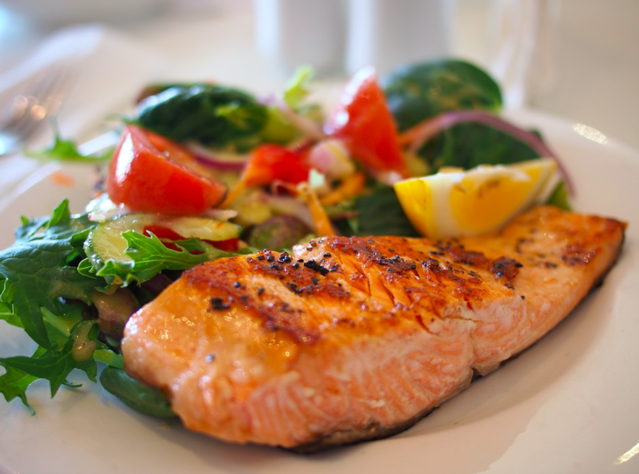Could Your Diet Postpone Your Menopause?
A new study shows the influence eating oily fish and fresh legumes on menopause.
Posted May 05, 2018
The UK Women’s Cohort Study results published April 2018 in the Journal of Epidemiology and Community Health show that women eating oily fish and fresh legumes had a delayed onset of natural compared with women eating more refined pasta and rice as well as savory snacks and soft drinks.
A higher intake of Vitamin B6 and Zinc was also associated with delayed onset of natural menopause.
Yashvee Dunneram from the University of Leeds, UK and colleagues studied 14,172 women aged 40 to 65 years living in the UK, Scotland and Ireland over four years. Among those, 914 women went into natural menopause (menopause being defined as 12 consecutive months without a period) during those four years.
Given the fact that the mean age of menopause was 50.5 years, Dunneram and colleagues showed that each increment in oily fish (rich in fatty acids) such as salmon, mackerel, sardines, trout and herring as well as fresh legumes (rich in antioxidants) portion per day was associated with a later age of natural menopause (could be as much as a three-year difference) compared with women eating more pasta and rice.
Interestingly enough, women who were vegetarians and ate fresh legumes without oily fish had their natural menopause earlier than the women who also ate oily fish. This could be explained by the fact that vegetarian women had a decreased fat intake which has been associated with a lower estrogen level in previous studies. This lower estrogen level could have been leading to an earlier menopause.
The authors remind us that previous published studies have shown that menopause at an early age is associated with lower bone density, osteoporosis, and increased cardio vascular problems and that other studies have shown that menopause at a later age has been associated with a higher risk of breast, ovarian and uterine cancers.
This content was originally published here.







